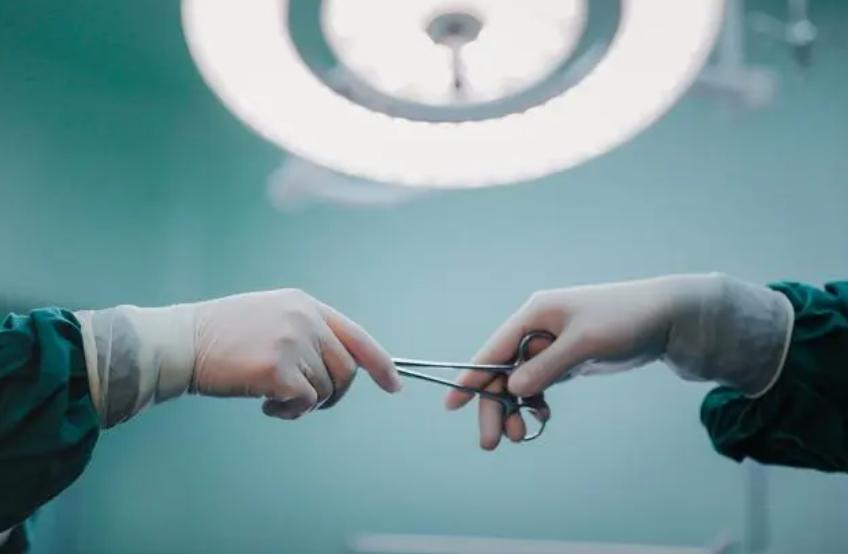
Recently, experts from the Organ Transplantation Center of the First Affiliated Hospital of Sun Yat sen University in China, together with an international team, published a shocking report in the authoritative international journal "Molecular Medicine of the European Molecular Biology Organization": they successfully revived an ex vivo pig brain that had been "dead" for 50 minutes using the internationally pioneering "ex vivo brain care technology". This milestone achievement not only brings unprecedented hope to the field of brain transplantation, but also opens up new methods and ideas for neuroscience research.
In the field of medicine, brain death has always been regarded as an irreversible endpoint. Traditionally, it is believed that once the brain stops supplying blood and oxygen, nerve cells will rapidly die and their functions will be lost. However, this study by Chinese scientists has overturned this traditional understanding. They successfully maintained the integrity of the cell structure and function of pig brains in a very short period of time after death, and even restored their metabolic activity to a certain extent, through innovative "ex vivo brain care technology".
The core of this technology lies in the precise protection and nutritional support of brain cells. The research team used specific solutions and conditions to simulate the physiological environment of the brain in vivo, thereby slowing down the rate of cell death and providing possibilities for subsequent recovery. In addition, they further improved the survival rate of brain cells through precise temperature control, oxygen supply, and nutrient supplementation.
The scientific significance of this research result is self-evident. It has demonstrated for the first time that brain cells can still be effectively protected and revived under ex vivo conditions. This discovery not only challenges our traditional understanding of brain death, but also provides new perspectives and tools for neuroscience research. Through this technology, scientists can delve deeper into the structure and function of the brain, exploring the pathogenesis and treatment methods of neurological diseases.
In terms of application prospects, this technology undoubtedly brings revolutionary changes to the field of brain transplantation. Traditional brain transplantation surgery faces many challenges, such as donor shortage, immune rejection, and nerve regeneration. The emergence of ex vivo brain care technology provides new ideas for solving these problems. Through this technology, scientists can preprocess and optimize the brain in vitro, thereby improving the success rate and safety of transplantation surgery. In addition, this technology is expected to play an important role in the field of nerve regeneration and repair, bringing new therapeutic hope to patients disabled by nerve injury.
However, the emergence of any new technology is accompanied by ethical and legal challenges. The successful application of ex vivo brain care technology undoubtedly triggered profound thinking on the definition of life and death standards. In traditional beliefs, brain death means the end of life. However, with the continuous development of this technology, should we redefine the boundaries of life? Furthermore, is this technology applicable to the human brain? If feasible, how can we ensure the rights and dignity of patients? These issues require us to engage in in-depth thinking and exploration.
At the legal level, the application of ex vivo brain care technology also faces many challenges. How to ensure the legality and security of technology? How to formulate relevant laws and regulations to regulate the use and development of technology? How to protect the privacy and rights of patients? These issues require us to establish a sound legal system and regulatory mechanism to address them.
The successful application of ex vivo brain care technology marks a significant breakthrough in the fields of neuroscience and medicine. The emergence of this technology not only provides new methods and ideas for brain transplantation and neuroscience research, but also brings new hope for us to explore the mysteries of life and cure neurological diseases. However, we should also be aware that the emergence of any new technology comes with challenges and risks. Therefore, while promoting technological development, we also need to strengthen ethical and legal supervision to ensure the legality and safety of technology. Only in this way can we truly achieve the harmonious coexistence of technology and humanities, and contribute more wisdom and strength to human health and well-being.

Venezuela's Vice President and Oil Minister Rodriguez said that the US government's blockade of sanctioned oil tankers entering and leaving Venezuela violates international law.
Venezuela's Vice President and Oil Minister Rodriguez said …
On December 16 local time, the Ministry of Space Science Ex…
Recently, a highly anticipated phone call between the defen…
Right now, the world's major central banks are standing at …
Recently, according to Xinhua News Agency, the news of a tr…
The Trump administration recently launched a new recruitmen…